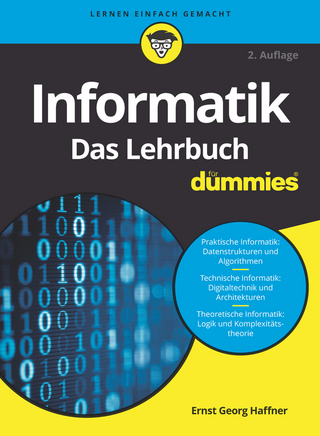
Applied Functional Analysis
Springer-Verlag New York Inc.
978-1-4612-6910-6 (ISBN)
1 Banach Spaces and Fixed-Point Theorems.- 1.1 Linear Spaces and Dimension.- 1.2 Normed Spaces and Convergence.- 1.3 Banach Spaces and the Cauchy Convergence Criterion.- 1.4 Open and Closed Sets.- 1.5 Operators.- 1.6 The Banach Fixed-Point Theorem and the Iteration Method.- 1.7 Applications to Integral Equations.- 1.8 Applications to Ordinary Differential Equations.- 1.9 Continuity.- 1.10 Convexity.- 1.11 Compactness.- 1.12 Finite-Dimensional Banach Spaces and Equivalent Norms.- 1.13 The Minkowski Functional and Homeomorphisms.- 1.14 The Brouwer Fixed-Point Theorem.- 1.15 The Schauder Fixed-Point Theorem.- 1.16 Applications to Integral Equations.- 1.17 Applications to Ordinary Differential Equations.- 1.18 The Leray-Schauder Principle and a priori Estimates.- 1.19 Sub- and Supersolutions, and the Iteration Method in Ordered Banach Spaces.- 1.20 Linear Operators.- 1.21 The Dual Space.- 1.22 Infinite Series in Normed Spaces.- 1.23 Banach Algebras and Operator Functions.- 1.24 Applications to Linear Differential Equations in Banach Spaces.- 1.25 Applications to the Spectrum.- 1.26 Density and Approximation.- 1.27 Summary of Important Notions.- 2 Hilbert Spaces, Orthogonality, and the Dirichlet Principle.- 2.1 Hilbert Spaces.- 2.2 Standard Examples.- 2.3 Bilinear Forms.- 2.4 The Main Theorem on Quadratic Variational Problems.- 2.5 The Functional Analytic Justification of the Dirichlet Principle.- 2.6 The Convergence of the Ritz Method for Quadratic Variational Problems.- 2.7 Applications to Boundary-Value Problems, the Method of Finite Elements, and Elasticity.- 2.8 Generalized Functions and Linear Functionals.- 2.9 Orthogonal Projection.- 2.10 Linear Functionals and the Riesz Theorem.- 2.11 The Duality Map.- 2.12 Duality for Quadratic Variational Problems.- 2.13 The Linear Orthogonality Principle.- 2.14 Nonlinear Monotone Operators.- 2.15 Applications to the Nonlinear Lax-Milgram Theorem and the Nonlinear Orthogonality Principle.- 3 Hilbert Spaces and Generalized Fourier Series.- 3.1 Orthonormal Series.- 3.2 Applications to Classical Fourier Series.- 3.3 The Schmidt Orthogonalization Method.- 3.4 Applications to Polynomials.- 3.5 Unitary Operators.- 3.6 The Extension Principle.- 3.7 Applications to the Fourier Transformation.- 3.8 The Fourier Transform of Tempered Generalized Functions.- 4 Eigenvalue Problems for Linear Compact Symmetric Operators.- 4.1 Symmetric Operators.- 4.2 The Hilbert-Schmidt Theory.- 4.3 The Fredholm Alternative.- 4.4 Applications to Integral Equations.- 4.5 Applications to Boundary-Eigenvalue Value Problems.- 5 Self-Adjoint Operators, the Friedrichs Extension and the Partial Differential Equations of Mathematical Physics.- 5.1 Extensions and Embeddings.- 5.2 Self-Adjoint Operators.- 5.3 The Energetic Space.- 5.4 The Energetic Extension.- 5.5 The Friedrichs Extension of Symmetric Operators.- 5.6 Applications to Boundary-Eigenvalue Problems for the Laplace Equation.- 5.7 The Poincaré Inequality and Rellich’s Compactness Theorem.- 5.8 Functions of Self-Adjoint Operators.- 5.9 Semigroups, One-Parameter Groups, and Their Physical Relevance.- 5.10 Applications to the Heat Equation.- 5.11 Applications to the Wave Equation.- 5.12 Applications to the Vibrating String and the Fourier Method.- 5.13 Applications to the Schrödinger Equation.- 5.14 Applications to Quantum Mechanics.- 5.15 Generalized Eigenfunctions.- 5.16 Trace Class Operators.- 5.17 Applications to Quantum Statistics.- 5.18 C*-Algebras and the Algebraic Approach to Quantum Statistics.- 5.19 The Fock Space in Quantum Field Theory and the Pauli Principle.- 5.20 A Look at Scattering Theory.- 5.21 The Language of Physicists in Quantum Physics and the Justification of the Dirac Calculus.- 5.22 The Euclidean Strategy in Quantum Physics.- 5.23 Applications to Feynman’s Path Integral.- 5.24 The Importance of the Propagator in Quantum Physics.- 5.25 A Look at Solitons and Inverse Scattering Theory.- Epilogue.- References.- Hints for Further Reading.- List of Symbols.- List of Theorems.- List of the Most Important Definitions.
| Reihe/Serie | Applied Mathematical Sciences ; 108 |
|---|---|
| Zusatzinfo | XXIX, 481 p. |
| Verlagsort | New York, NY |
| Sprache | englisch |
| Maße | 155 x 235 mm |
| Themenwelt | Mathematik / Informatik ► Informatik ► Theorie / Studium |
| Mathematik / Informatik ► Mathematik ► Algebra | |
| Mathematik / Informatik ► Mathematik ► Analysis | |
| Mathematik / Informatik ► Mathematik ► Angewandte Mathematik | |
| Mathematik / Informatik ► Mathematik ► Finanz- / Wirtschaftsmathematik | |
| ISBN-10 | 1-4612-6910-5 / 1461269105 |
| ISBN-13 | 978-1-4612-6910-6 / 9781461269106 |
| Zustand | Neuware |
| Informationen gemäß Produktsicherheitsverordnung (GPSR) | |
| Haben Sie eine Frage zum Produkt? |
aus dem Bereich


